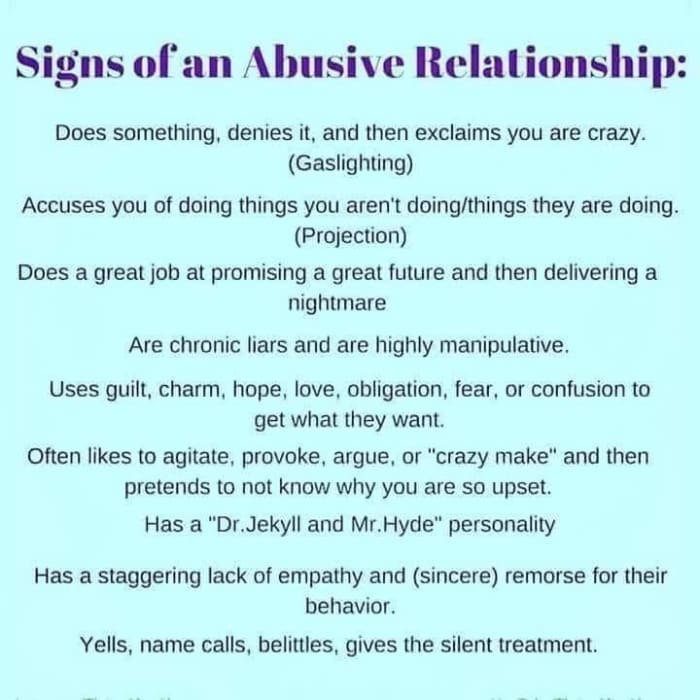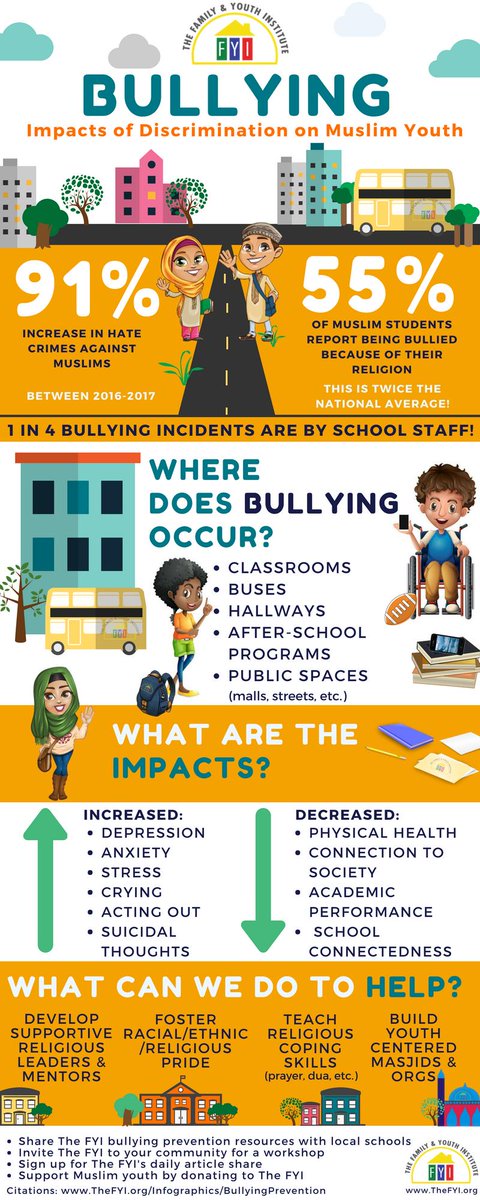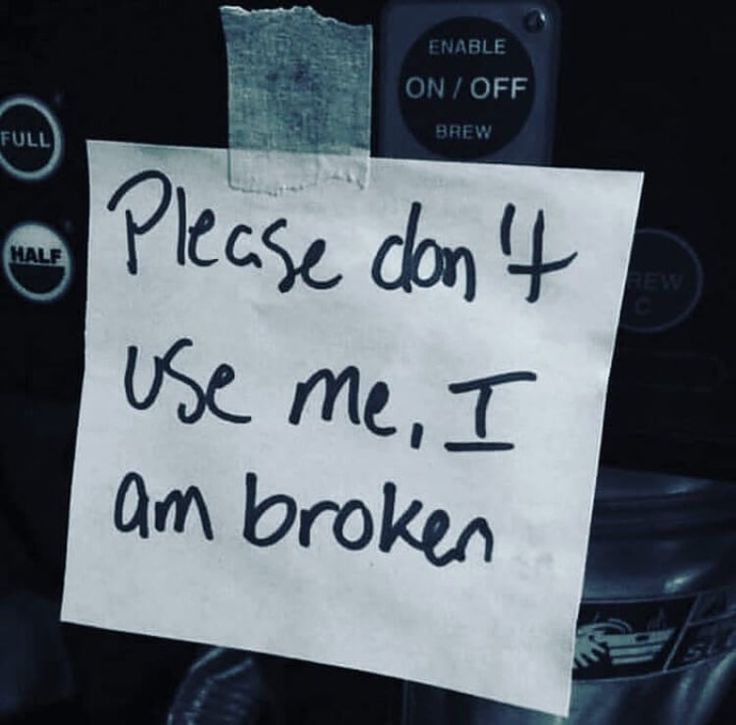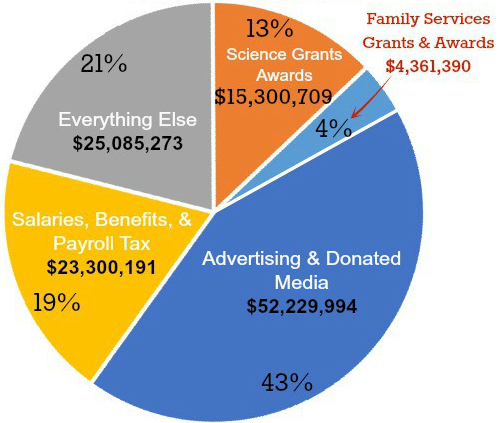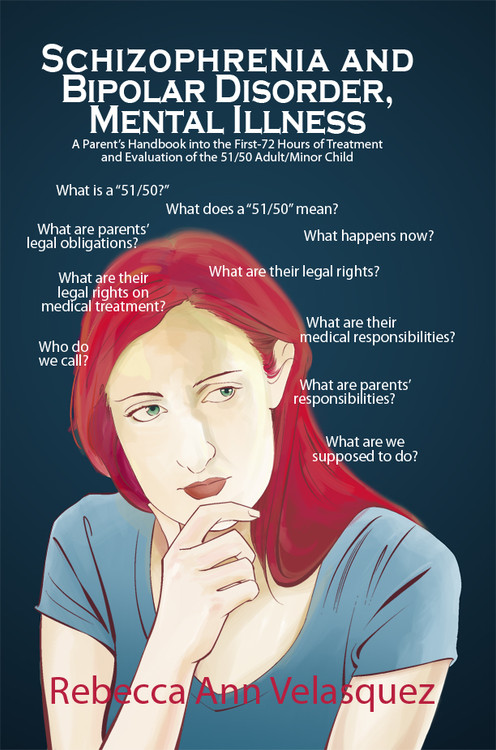Gaslighting in parents
Gaslighting in Families: Signs of Gaslighting Parents
The term gaslighting has seeped into our cultural lexicon in recent years, revealing that the phenomenon is much more prevalent in our everyday lives than we realized. You may have even experienced gaslighting firsthand without knowing it (hello, passive-aggressive manager). After all, gaslighting can be sneaky, subtle, and sometimes done unconsciously, or it can happen right out in the open with complete intent.¹
If you’re not sure what it is, simply put, gaslighting is a form of psychological manipulation in which someone makes another person doubt his or her perceptions, experiences, memories, or understanding of events.² Gaslighting can really mess with a person’s mind and it is especially harmful when it comes from your own family—your parents in particular.
Let’s break it down.
What Does It Mean To Be Gaslit by a Parent?
Gaslighting plays off of power relationships, so in a family, it's likely to occur between a parent and child or between an older and younger sibling. ²˒ ³ When it’s done by, say, a mother to a daughter, “it can undermine her sense of reality or make her vulnerable to second-guessing herself,” says Robin Stern, PhD, co-founder and associate director of the Yale Center for Emotional Intelligence and author of The Gaslight Effect: How to Spot and Survive the Hidden Manipulation Others Use to Control Your Life.
Examples of Gaslighting Parents
Gaslighting can harm the parent-child relationship. Here are a few examples of gaslighting behaviors.
A parent might tell a child, “you’re not hungry; you’re tired” when he or she begs for a snack in the grocery store. Or, the parent might say, “you’re being too sensitive” when a child complains that a sibling hurt his or her feelings.
Gaslighting may occur when a parent criticizes a child but couches it as an expression of caring or emotional support, leaving the child to question his or her reaction. It can occur when a parent insists that a child’s memory of a particular event isn’t the way it happened, too.
When it’s done by a parent, gaslighting can be particularly damaging because “it often leaves a child questioning their feelings or reality,” Stern explains. “There’s a vulnerability to not trusting your feelings or letting someone else define your feelings. If you don’t question gaslighting, you might grow up thinking there must be something wrong with you.”
When a parent’s gaslighting is done unconsciously, it may be related to a personality disorder or another form of mental illness that the parent doesn’t want to acknowledge, according to Craig Malkin, PhD, a clinical psychologist and lecturer at Harvard Medical School and author of Rethinking Narcissism. Under these circumstances, when the parent starts to fall apart in the face of stress, his or her thinking, judgment, or behavior may be impaired.
To save face, the gaslighting parent may try to make the child believe that what they said or did was strange when it was really the parent being overly reactive or paranoid, Malkin says.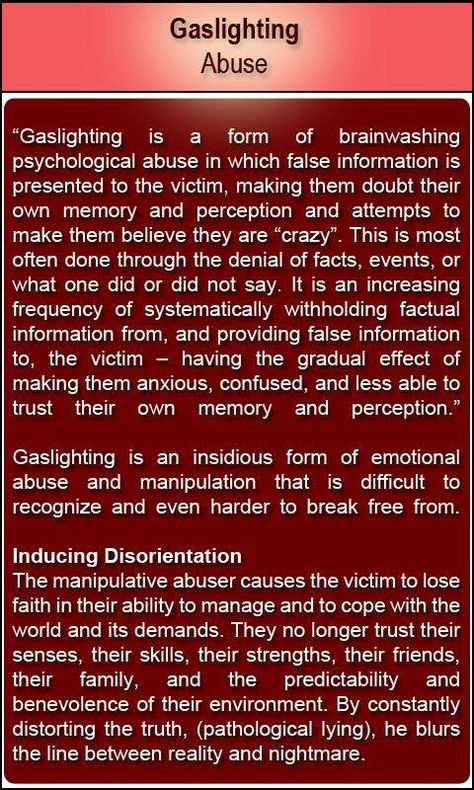 “They need to maintain a sense of being sure of themselves.”
“They need to maintain a sense of being sure of themselves.”
By contrast, conscious or intentional gaslighting may reflect a parent doing or saying things to undermine the child’s trust in herself so that the parent can get away with something, he adds.
Types of Gaslighting in Families
In the family environment, there are three primary types of gaslighting, according to Malkin:
Narrative gaslighting, in which a child might remember things a certain way and the parent changes the story and tries to convince the child it happened their way.
Emotional gaslighting, in which a parent reacts to a child as though his or her feelings are wrong or don’t make sense when they actually do—which is problematic because “our feelings are very close to our sense of self,” Malkin notes.
Personal gaslighting, whereby a parent undermines a child’s sense of his or her own capacity or trust in him- or herself. “This is often the most insidious form because it manipulates you to think that what you know about yourself is not true,” Malkin says.
 “It also undermines your self-esteem and trust in yourself.”
“It also undermines your self-esteem and trust in yourself.”
Keep in mind: “Gaslighters are not born—they learn it somewhere,” Stern says. So, a parent who gaslights his or her children may have experienced it or witnessed it in their own life.
How Can You Heal From Gaslighting?
It’s not easy. It takes time and conscious effort, especially when it comes from a parent to heal from gaslighting. “It’s very hard when it’s a family member because most of the time you don’t want to end the relationship even when you see the gaslighting in full bloom,” Stern says. What you can do is limit your interactions with the gaslighting parent or avoid discussing certain subjects.
If a family member disputes your memory about an event—or insists that you’re wrong about how things happened—gently push back by saying something like “we need to agree to disagree about this.” This is a healthy way of setting emotional boundaries, as well as protecting your well-being.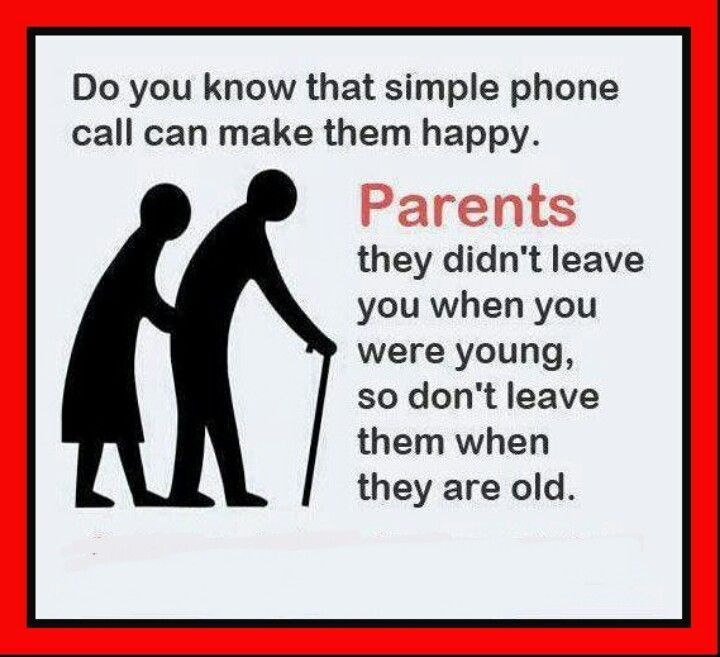
It’s also important to recognize that you’re unlikely to get your parent to admit that he or she is manipulating you. “What you need to do is let go of your desire to have your parent acknowledge that you are right, or get your parent’s approval at that moment,” Stern says.
Instead, make an effort to focus on learning to trust your perceptions and your inner voice. During stressful encounters or conflicts, “set aside your first instinct to doubt yourself, tune into an immediate feeling about an event, and see what comes up,” Malkin advises. In addition, writing in a journal and talking to trusted friends about your perceptions to give them a reality check can help with getting a gaslighting parent’s voice out of your head.
Similarly, choosing to surround yourself with people who see and support your strengths and affirm your spirit can help with the healing process, Stern says, and so can having compassion for yourself.
“Treat yourself with the same compassion you’d show any of your friends or loved ones” and make an effort to feel love and appreciation for yourself even as you seek to understand more about your gaslighting experiences,” Stern advises. “Sometimes, being compassionate toward ourselves is the hardest task of all. But in my experience, that is often when change truly begins.”
“Sometimes, being compassionate toward ourselves is the hardest task of all. But in my experience, that is often when change truly begins.”
Gaslighting by Parents FAQs
*Answers to FAQs provided by Robin Stern, PhD, co-founder and associate director of the Yale Center for Emotional Intelligence and author of The Gaslight Effect: How to Spot and Survive the Hidden Manipulation Others Use to Control Your Life and Craig Malkin, PhD, a clinical psychologist and lecturer at Harvard Medical School and author of Rethinking Narcissism.
What are some examples of gaslighting parents?
If a parent repeatedly denies or disputes your experiences or your feelings about them, makes you doubt or feel bad about yourself, or tries to relinquish responsibility for something he or she did by blaming you—those are all signs of gaslighting. Having a parent tell you what you’re like (“you often overreact because you don’t handle conflict well”) or making blanket statements about your character (“you’re selfish”), count as well.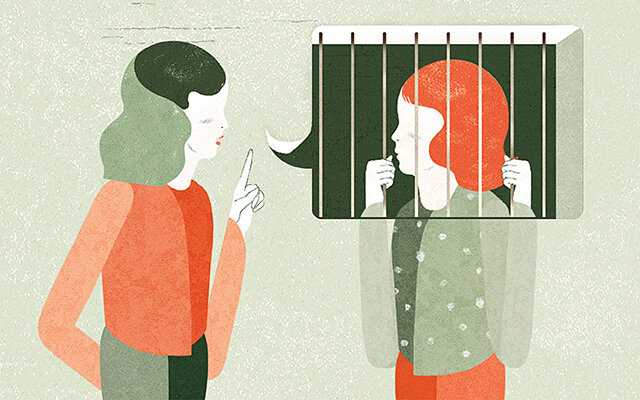
These are both forms of externalizing blame onto the recipient and avoiding taking responsibility for their actions.
How do you know if a parent is gaslighting you?
It helps to try to separate truth from distortion, Stern says. “Sometimes you can’t go by just the words or even by a person’s tone of voice or body language. Sometimes, you have to ask yourself what you really think is true and go with that deep perception.”
Can gaslighting lead to PTSD?
“If you were gaslighted in a consistent and extreme way, it can become a form of emotional abuse and it can be traumatic,” says Stern. What’s more, if you grew up feeling afraid of expressing your feelings or speaking your truth because you were worried that a parent might gaslight you, that creates a sense of danger in any situation that involves conflict, which can feel traumatic, Malkin adds.
The trauma can lead you to constantly question and trust future relationships as well.
How can you tell if an adult child is gaslighting a parent?
If a teenager or adult child intentionally lies about something he or she did (like denting the car) and tries to convince the parent it happened on their watch, that’s gaslighting. Or, if an adult child tries to manipulate the way a parent remembers something — by saying “You know your memory isn’t that clear” — in order to make him or herself look better, that’s gaslighting,
Or, if an adult child tries to manipulate the way a parent remembers something — by saying “You know your memory isn’t that clear” — in order to make him or herself look better, that’s gaslighting,
In these examples, the power dynamics have shifted. The child's behavior may have been learned from the parents but it's also possible for children to learn behavior from their peers.
- American Psychological Association. APA Dictionary of Psychology: gaslight. https://dictionary.apa.org/gaslight. Accessed September 28, 2021.
- Sweet, Paige L. “The Sociology of Gaslighting” in American Sociological Review, 2019; Vol. 84(5): 851-875. https://www.asanet.org/sites/default/files/attach/journals/oct19asrfeature.pdf. Accessed September 28, 2021.
Stacey Colino
Stacey Colino is an award-winning writer, specializing in health, fitness, and psychological issues, and an ACE-certified health coach. Her work has appeared in dozens of national magazines, and she is the co-author of the books Disease-Proof: The Remarkable Truth About What Makes Us Well, Strong Is the New Skinny, Good Food Fast!, and Taking Back the Month.
Gaslighting in Families: Signs of Gaslighting Parents
The term gaslighting has seeped into our cultural lexicon in recent years, revealing that the phenomenon is much more prevalent in our everyday lives than we realized. You may have even experienced gaslighting firsthand without knowing it (hello, passive-aggressive manager). After all, gaslighting can be sneaky, subtle, and sometimes done unconsciously, or it can happen right out in the open with complete intent.¹
If you’re not sure what it is, simply put, gaslighting is a form of psychological manipulation in which someone makes another person doubt his or her perceptions, experiences, memories, or understanding of events.² Gaslighting can really mess with a person’s mind and it is especially harmful when it comes from your own family—your parents in particular.
Let’s break it down.
What Does It Mean To Be Gaslit by a Parent?
Gaslighting plays off of power relationships, so in a family, it's likely to occur between a parent and child or between an older and younger sibling. ²˒ ³ When it’s done by, say, a mother to a daughter, “it can undermine her sense of reality or make her vulnerable to second-guessing herself,” says Robin Stern, PhD, co-founder and associate director of the Yale Center for Emotional Intelligence and author of The Gaslight Effect: How to Spot and Survive the Hidden Manipulation Others Use to Control Your Life.
²˒ ³ When it’s done by, say, a mother to a daughter, “it can undermine her sense of reality or make her vulnerable to second-guessing herself,” says Robin Stern, PhD, co-founder and associate director of the Yale Center for Emotional Intelligence and author of The Gaslight Effect: How to Spot and Survive the Hidden Manipulation Others Use to Control Your Life.
Examples of Gaslighting Parents
Gaslighting can harm the parent-child relationship. Here are a few examples of gaslighting behaviors.
A parent might tell a child, “you’re not hungry; you’re tired” when he or she begs for a snack in the grocery store. Or, the parent might say, “you’re being too sensitive” when a child complains that a sibling hurt his or her feelings.
Gaslighting may occur when a parent criticizes a child but couches it as an expression of caring or emotional support, leaving the child to question his or her reaction. It can occur when a parent insists that a child’s memory of a particular event isn’t the way it happened, too.
When it’s done by a parent, gaslighting can be particularly damaging because “it often leaves a child questioning their feelings or reality,” Stern explains. “There’s a vulnerability to not trusting your feelings or letting someone else define your feelings. If you don’t question gaslighting, you might grow up thinking there must be something wrong with you.”
When a parent’s gaslighting is done unconsciously, it may be related to a personality disorder or another form of mental illness that the parent doesn’t want to acknowledge, according to Craig Malkin, PhD, a clinical psychologist and lecturer at Harvard Medical School and author of Rethinking Narcissism. Under these circumstances, when the parent starts to fall apart in the face of stress, his or her thinking, judgment, or behavior may be impaired.
To save face, the gaslighting parent may try to make the child believe that what they said or did was strange when it was really the parent being overly reactive or paranoid, Malkin says.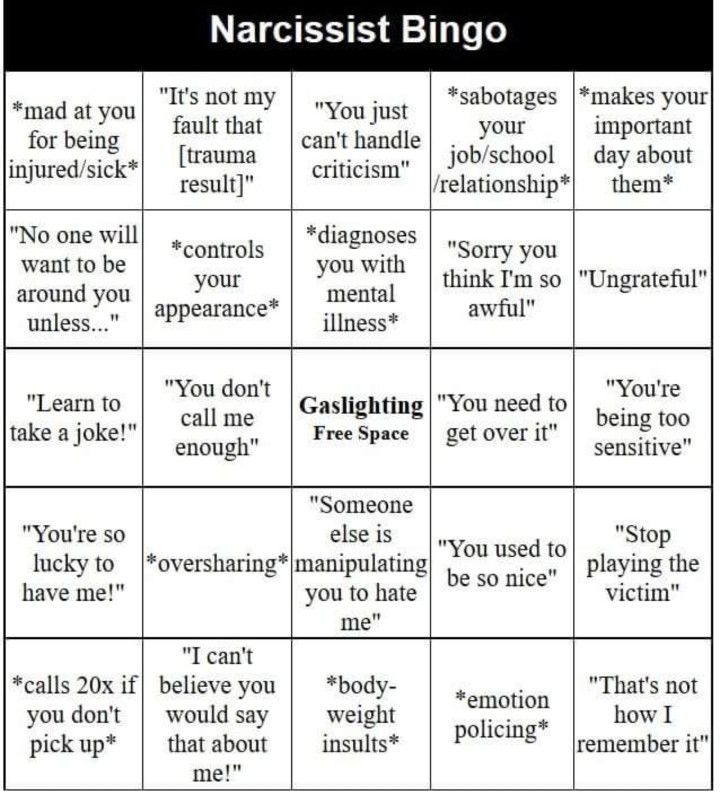 “They need to maintain a sense of being sure of themselves.”
“They need to maintain a sense of being sure of themselves.”
By contrast, conscious or intentional gaslighting may reflect a parent doing or saying things to undermine the child’s trust in herself so that the parent can get away with something, he adds.
Types of Gaslighting in Families
In the family environment, there are three primary types of gaslighting, according to Malkin:
Narrative gaslighting, in which a child might remember things a certain way and the parent changes the story and tries to convince the child it happened their way.
Emotional gaslighting, in which a parent reacts to a child as though his or her feelings are wrong or don’t make sense when they actually do—which is problematic because “our feelings are very close to our sense of self,” Malkin notes.
Personal gaslighting, whereby a parent undermines a child’s sense of his or her own capacity or trust in him- or herself. “This is often the most insidious form because it manipulates you to think that what you know about yourself is not true,” Malkin says.
 “It also undermines your self-esteem and trust in yourself.”
“It also undermines your self-esteem and trust in yourself.”
Keep in mind: “Gaslighters are not born—they learn it somewhere,” Stern says. So, a parent who gaslights his or her children may have experienced it or witnessed it in their own life.
How Can You Heal From Gaslighting?
It’s not easy. It takes time and conscious effort, especially when it comes from a parent to heal from gaslighting. “It’s very hard when it’s a family member because most of the time you don’t want to end the relationship even when you see the gaslighting in full bloom,” Stern says. What you can do is limit your interactions with the gaslighting parent or avoid discussing certain subjects.
If a family member disputes your memory about an event—or insists that you’re wrong about how things happened—gently push back by saying something like “we need to agree to disagree about this.” This is a healthy way of setting emotional boundaries, as well as protecting your well-being.
It’s also important to recognize that you’re unlikely to get your parent to admit that he or she is manipulating you. “What you need to do is let go of your desire to have your parent acknowledge that you are right, or get your parent’s approval at that moment,” Stern says.
Instead, make an effort to focus on learning to trust your perceptions and your inner voice. During stressful encounters or conflicts, “set aside your first instinct to doubt yourself, tune into an immediate feeling about an event, and see what comes up,” Malkin advises. In addition, writing in a journal and talking to trusted friends about your perceptions to give them a reality check can help with getting a gaslighting parent’s voice out of your head.
Similarly, choosing to surround yourself with people who see and support your strengths and affirm your spirit can help with the healing process, Stern says, and so can having compassion for yourself.
“Treat yourself with the same compassion you’d show any of your friends or loved ones” and make an effort to feel love and appreciation for yourself even as you seek to understand more about your gaslighting experiences,” Stern advises. “Sometimes, being compassionate toward ourselves is the hardest task of all. But in my experience, that is often when change truly begins.”
“Sometimes, being compassionate toward ourselves is the hardest task of all. But in my experience, that is often when change truly begins.”
Gaslighting by Parents FAQs
*Answers to FAQs provided by Robin Stern, PhD, co-founder and associate director of the Yale Center for Emotional Intelligence and author of The Gaslight Effect: How to Spot and Survive the Hidden Manipulation Others Use to Control Your Life and Craig Malkin, PhD, a clinical psychologist and lecturer at Harvard Medical School and author of Rethinking Narcissism.
What are some examples of gaslighting parents?
If a parent repeatedly denies or disputes your experiences or your feelings about them, makes you doubt or feel bad about yourself, or tries to relinquish responsibility for something he or she did by blaming you—those are all signs of gaslighting. Having a parent tell you what you’re like (“you often overreact because you don’t handle conflict well”) or making blanket statements about your character (“you’re selfish”), count as well.
These are both forms of externalizing blame onto the recipient and avoiding taking responsibility for their actions.
How do you know if a parent is gaslighting you?
It helps to try to separate truth from distortion, Stern says. “Sometimes you can’t go by just the words or even by a person’s tone of voice or body language. Sometimes, you have to ask yourself what you really think is true and go with that deep perception.”
Can gaslighting lead to PTSD?
“If you were gaslighted in a consistent and extreme way, it can become a form of emotional abuse and it can be traumatic,” says Stern. What’s more, if you grew up feeling afraid of expressing your feelings or speaking your truth because you were worried that a parent might gaslight you, that creates a sense of danger in any situation that involves conflict, which can feel traumatic, Malkin adds.
The trauma can lead you to constantly question and trust future relationships as well.
How can you tell if an adult child is gaslighting a parent?
If a teenager or adult child intentionally lies about something he or she did (like denting the car) and tries to convince the parent it happened on their watch, that’s gaslighting. Or, if an adult child tries to manipulate the way a parent remembers something — by saying “You know your memory isn’t that clear” — in order to make him or herself look better, that’s gaslighting,
Or, if an adult child tries to manipulate the way a parent remembers something — by saying “You know your memory isn’t that clear” — in order to make him or herself look better, that’s gaslighting,
In these examples, the power dynamics have shifted. The child's behavior may have been learned from the parents but it's also possible for children to learn behavior from their peers.
- American Psychological Association. APA Dictionary of Psychology: gaslight. https://dictionary.apa.org/gaslight. Accessed September 28, 2021.
- Sweet, Paige L. “The Sociology of Gaslighting” in American Sociological Review, 2019; Vol. 84(5): 851-875. https://www.asanet.org/sites/default/files/attach/journals/oct19asrfeature.pdf. Accessed September 28, 2021.
Stacey Colino
Stacey Colino is an award-winning writer, specializing in health, fitness, and psychological issues, and an ACE-certified health coach. Her work has appeared in dozens of national magazines, and she is the co-author of the books Disease-Proof: The Remarkable Truth About What Makes Us Well, Strong Is the New Skinny, Good Food Fast!, and Taking Back the Month.
Gaslighting in education. How we break children and what we can change
The child has fallen and sadly runs to his parents to be pitied. And dad or mom answer: "Yes, it's okay, it will pass now." Have you experienced this? Our blogger, psychologist and mother of five children Karina Richtere sometimes says so herself. But it's better not to do that. And that's why.
"Nothing hurts you!"
I often notice how other mothers, in response to broken knees or other upsets of the child, brush off the on-duty phrase: "Don't invent, nothing hurts you." And this “it doesn’t hurt”, “it wasn’t”, “don’t invent” is passed on from generation to generation. I, too, sometimes say so.
In general, this is normal. A mother is not always able to contain a child's emotions or deal with how real the stories told by her son or daughter are. Sometimes there is simply no time for this. As well as grieving over a fallen candy when you are late for kindergarten or a circle.
In some cases, if the child is especially sensitive and is ready to cry over every scratch or fallen crumb, this approach may even be useful. It works like a switch, helping to separate real experiences from imaginary ones. It may be better to use other phrases for such a switch. But in extreme cases, these will do.
The key here is "sometimes", "occasionally", and "in extreme cases". If a mother constantly uses such phrases and brushes aside any experiences or memories of a child with their help, then we are talking about a manipulation called gaslighting. Usually this term is used when describing the relationship of adults, but very often it is also used by parents in relations with children.
“It never happened”
Gaslighting is suggesting to a person that their feelings are wrong or not adequate and justified enough. It's always manipulation. With the help of gaslighting, we want to ensure that the child behaves the way we want. That is why we say that he remembers or feels wrong.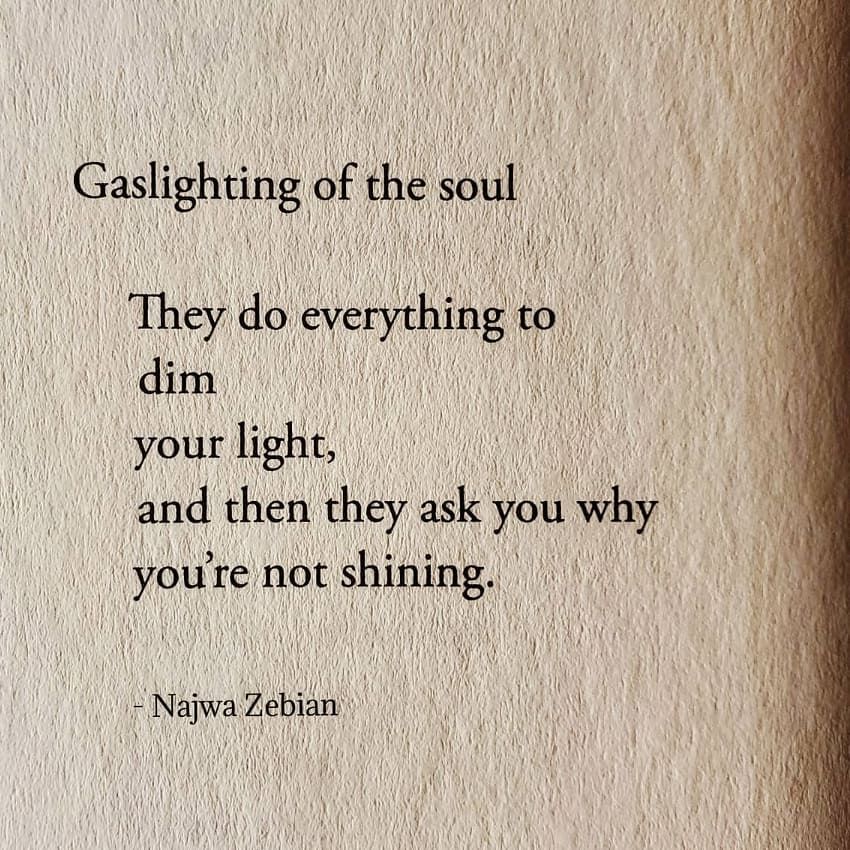 With rare exceptions, we use this technique unconsciously. For most, it becomes a psychological defense against the child's memories or emotions. This happens for several reasons:
With rare exceptions, we use this technique unconsciously. For most, it becomes a psychological defense against the child's memories or emotions. This happens for several reasons:
- We ourselves grew up in a family in which parents used this technique . Our mothers and grandmothers hardly studied the techniques of psychology, therefore they believed that the denial of experiences makes them invisible. If we don’t talk about feelings or unpleasant moments, it’s as if they don’t exist at all.
- Here again, greetings from our childhood, when we were told that you shouldn’t cry because it upsets grandmother . And we again hide our heads in the sand, pretending that the child is not experiencing anything, and trying to convince not only him, but also ourselves.
- This behavior may also depend on how we build relationships with society . If our self-esteem lies in the plane of approval or disapproval of others, we try to adjust our behavior to the standards of society.
 And it is not accepted in society for a child to cry or share unpleasant experiences.
And it is not accepted in society for a child to cry or share unpleasant experiences. - Passive aggression . In cases where we cannot express our emotions openly, we begin to use implicit methods to express our dissatisfaction with the child's behavior. Because of this, we tell him that he does not feel what he feels.
The good news is that we can fix this. The bad news is that even the therapeutic and unconscious use of gaslighting can cause a child to develop psychological problems.
Well Intentioned
Imagine that your every action or memory is constantly questioned, and the person you trust constantly says that your memories are made up and your feelings are fictitious. How long can you maintain an adequate view of yourself and the world?
For a child, the effects of gaslighting are even more serious. He still does not know how to rely on himself and his judgments, and evaluates the outside world through the prism of parental assessments and experiences. If mom or dad constantly tells him that he doesn't feel pain when he hits, or if his memories are actually false, he quickly begins to doubt himself.
If mom or dad constantly tells him that he doesn't feel pain when he hits, or if his memories are actually false, he quickly begins to doubt himself.
The more often he is told about this, the greater the discrepancy he experiences. On the one hand, there is pain or some events that he remembers. On the other hand, there is a mother who is always right and never wrong. And if the child's experiences do not correspond to what the parents say, he concludes that something is wrong with him. This “not so” has long-term consequences for all areas of a child’s life:
- Instead of working through emotions, he starts suppressing them and pretending they don't exist . Therefore, he does not understand what he feels, what he wants, what is good for him and what is bad. This, in turn, leads to the fact that he follows the lead of others, because he does not know how to work with his emotions and desires.
- The inability to understand oneself and constant doubts about one's own adequacy make the child dependent on the opinions of other people .
 This can lead to the fact that he enters into unhealthy relationships, becomes a victim of manipulators and scammers, and cannot move up the career ladder.
This can lead to the fact that he enters into unhealthy relationships, becomes a victim of manipulators and scammers, and cannot move up the career ladder. - When a child doubts himself, he cannot make decisions and take responsibility for his own actions . After all, from childhood he was told what exactly he feels, which of his memories are real. So he prefers that others be responsible for his actions and emotions.
He may have problems with self-esteem, learning, relationships with peers, choosing a life path, finding himself, trusting the world. The list is endless. After all, trust in yourself and your feelings is the basis on which a personality is built.
"I believe you"
If you notice that you often use gaslighting techniques in parenting, this is the third step in getting rid of manipulation. The second is to understand in what situations and why you use it. You can start keeping a diary and note in it all the manipulative techniques that you use. You can live it again at the end of the day and note what and how you said to the child.
You can live it again at the end of the day and note what and how you said to the child.
The last and most difficult part of the journey is to get rid of gaslighting and replace it with more constructive ways of interacting:
- Experience emotions . Our emotions and reactions to external events are what makes us who we are. That is why there are no bad and good emotions. Each of them is necessary and important. Use self-help books, paid and free support groups, psychological help to pump up emotional intelligence and teach this to your child.
- Speak more . If you grew up in an emotionally cold family, it will be difficult for you to understand and articulate your emotions. Start small - understand your reactions and ways of expressing them. You can draw them or tell stories. You can just say them out loud. Tell your child what and why you feel, and ask him to talk about his emotions. So you learn to express them verbally without active or passive aggression.
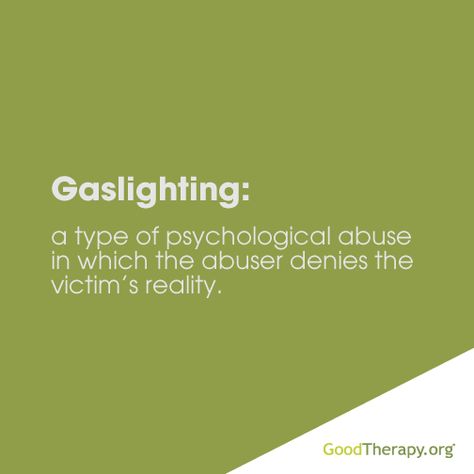
- Take time out when you feel you can't handle your emotions or your child's emotions. Better to say nothing than to say wrong. If you can't process the emotions now or help your child process them, it's best to just hug him and let him cry.
- Trust what the child says . Even if it seems to you that the story he told is complete nonsense, give him the opportunity to speak. Don't say that he invented it or that it didn't happen. Better to ask leading questions. If a child really came up with a situation, sooner or later he will admit it. But this is how you show that you believe him.
Remember: no one is born perfect. And even professional psychologists can make mistakes in education. Much more important is what conclusions we draw from these mistakes and whether we want to correct them.
Photo: shutterstock / Yuganov Konstantin
You are in the "Blogs" section. The opinion of the author may not coincide with the position of the editors.
What is gaslighting, why do parents use it, and how to stop? Big Analysis
We have already told you how to test yourself for toxicity (alas, some of the parenting practices that we intuitively copy after our own parents have nothing to do with healthy and productive communication), and now we want to talk about gaslighting.
This word, which is still unusual for Russians, appeared thanks to the play “Gas light”, written in 1938. In this work, the phenomenon of gaslighting is shown as literally as possible: the hero of the play convinces his wife that she is going crazy in order to hide his criminal deeds (for more details, you can read, for example, here).
Gaslighting is a form of psychological abuse in which one person (the abuser) tries to make another person (the victim) question their mental health, their perception of reality and their memories, constantly devaluing his experience and experiences, intimidating and blaming. Although gaslighting is most often seen as a form of abuse in partnerships, it also occurs in parent-child relationships.
Although gaslighting is most often seen as a form of abuse in partnerships, it also occurs in parent-child relationships.
For example, when a child falls, breaks his knee, and cries in pain, parents who do not want to deal with his feelings may begin to convince him that "everything is in order" and that he "does not hurt at all." This does not mean that you need to make a drama out of every abrasion, but if parents systematically ignore and deny their child's experiences, this is real gaslighting.
It is much healthier and more effective to first acknowledge the child’s feelings (“Yes, I understand that you are in pain — you fell and broke your knee. It is very unpleasant”), then help him reduce the pain (for example, treat the wound and cover it with a band-aid), and then reassure the child (“It’s all right now, your knee will heal soon”).
Even if such actions of parents are caused by good intentions - for example, in this way they expect to make delicate, grateful and empathic people out of their children, in fact they only increase the internal suspicions of children that something is very wrong with them, and this negatively affects their self-esteem.
Even seemingly innocuous phrases such as "it's not the end of the world" or "nothing terrible happened," if used every time a child encounters strong feelings, serious problems, or deep feelings, can make a child stop believing his own sensations.
Children grow up and gradually learn to hide their feelings, hide them from others or ignore them. This can lead to negative consequences: anxiety, depression and suicidal thoughts.
In addition, people who experienced gaslighting as children are more likely to get into abusive relationships: all because they were taught from an early age that their feelings and experiences are insignificant, inadequate and wrong. Because of this, they are unable to objectively assess situations in which they are mistreated and believe that they deserve all the bad things that happen to them.
Detecting gaslighting in parent-child relationships may not be as easy as it is in partnerships. This is because the relationship between a child and a parent initially involves an imbalance of power and an uneven distribution of roles.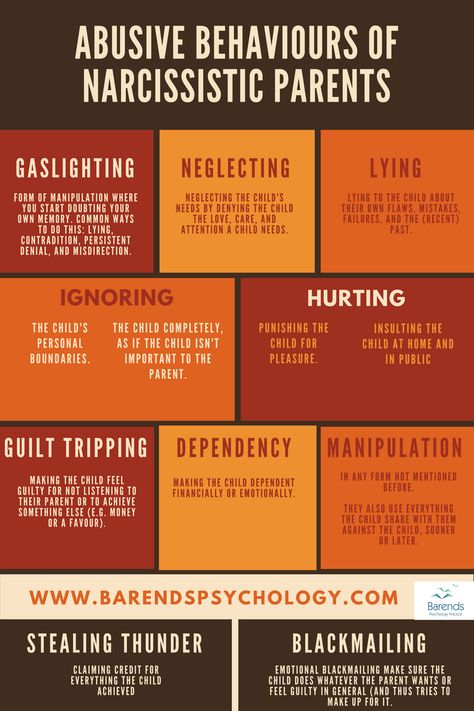
Often, gaslighting is also associated with the parenting style that is practiced in the family - for example, "helicopter" parents gaslight their children more often. Let's see why parents do this at all.
As children grow up and become more independent and independent, parents begin to feel that control over their children's lives is slipping away from them, and they try with all their might to regain it. Parents begin to deceive their children, devalue their feelings and substitute concepts in order to maintain their status as the main people in their lives.
Another reason for parental gaslighting is an attempt to compensate for one's own mistakes and self-doubt. Instead of analyzing the problems and reasons that make them feel like "bad parents", some parents prefer to resort to gaslighting as a way to manipulate their children and increase their own self-esteem.
It is not uncommon for parents to not notice that they are gaslighting their children.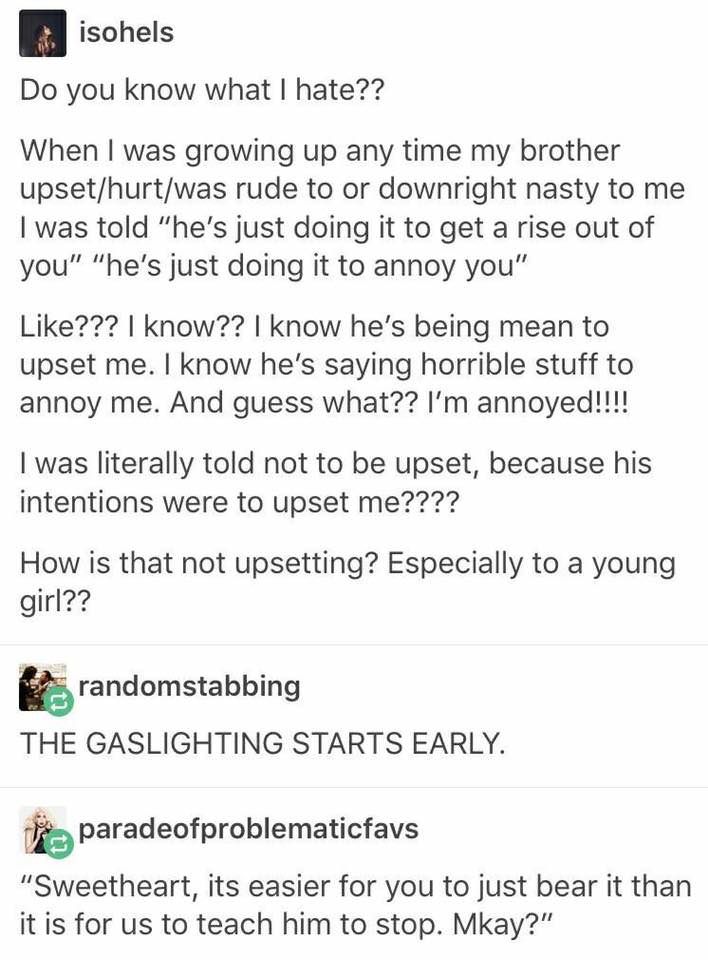 For example, they have inherited some educational practices from their own parents and now automatically apply them to their own children, without noticing that what they are doing is not very useful. Here are the points to pay attention to.
For example, they have inherited some educational practices from their own parents and now automatically apply them to their own children, without noticing that what they are doing is not very useful. Here are the points to pay attention to.
It is important to realize that the same events in the memory of different people may look different - and this is completely normal. If you critique, refute, or attempt to "edit" your child's memories of certain events, this can be a form of gaslighting.
All feelings and experiences have a right to exist, even if they make you feel uncomfortable or even if you think they do not fit the situation. When you try to downplay your child's feelings, pretend they don't exist, or downplay them, that's gaslighting.
Some parents are so insecure and in such need of recognition that they begin to seriously compete with their children in their skills and achievements, trying to prove how much better and smarter they are.
Few things harm a child as much as when his parents try to compare him with other children.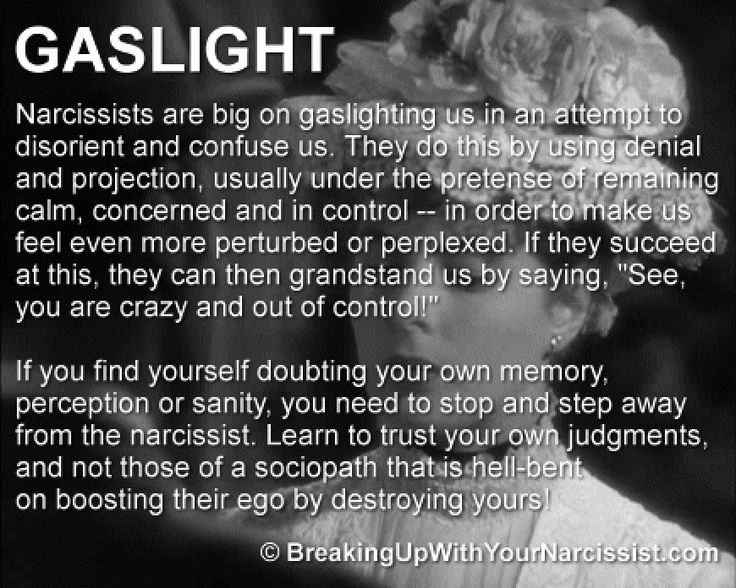 Even if the comparison seems harmless or is in favor of your child, it still does not lead to anything good.
Even if the comparison seems harmless or is in favor of your child, it still does not lead to anything good.
Interesting topics
Comparison is the mother of violence: an excerpt from Dima Zitser's book Love Cannot Be Raised
If you constantly question the thoughts, ideas and beliefs of your children, you make them doubt their own competence, adequacy and ability to reasonably assess what is happening around them. Doubt poisons the child's self-esteem and his ability to make decisions on his own.
Parents (sometimes without realizing it) often blame their children for their own problems through gaslighting. This is not healthy and leads to disastrous consequences - children are not responsible for their parents' problems, as well as for their mistakes, worries and feelings.
Sometimes parents, unable to come to terms with the growing independence of their children, begin to purposefully limit their children's contacts with the outside world, isolate them from society so that they spend more time with their families.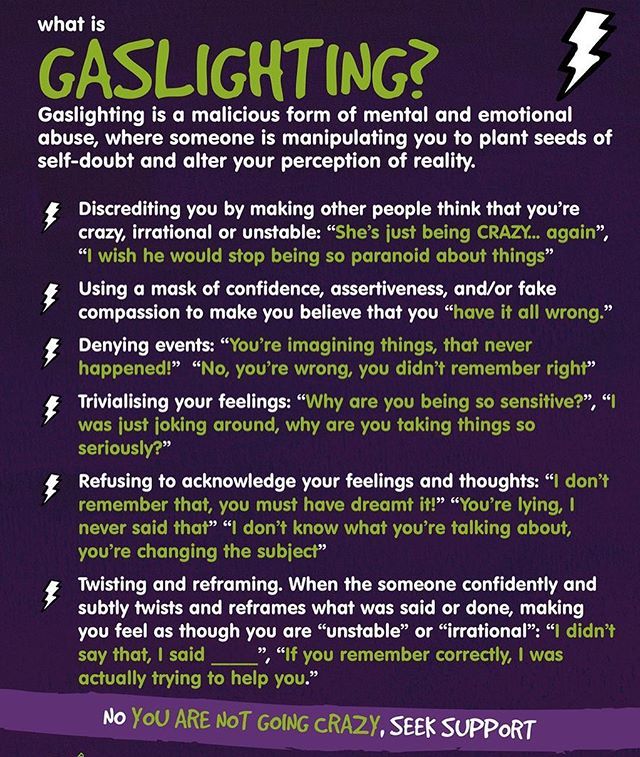
If you recognize yourself in one or more of the items on this list, then you may sometimes use gaslighting to achieve your goals - intentionally or unconsciously. Here's what's best to do instead.
Yes, sometimes children's emotions can be too strong, unpredictable and exhausting for adults, and sometimes we are ready to do anything to stop them, but this is definitely not the best solution.
Listen to your child's concerns, acknowledge his emotions, support him, don't judge or shame him for how he feels. This rule works in all cases: from a story with a broken knee to tears due to the fact that a classmate did not reciprocate a valentine.
Like it or not, your child is getting older and more independent. The best thing you can do for him is to encourage and support his independence, teach him his missing skills, allow him to make friends on his own, make decisions and take responsibility for them.
Undeniably, by hook or by crook, preventing a sensitive toddler from crying is somewhat easier than containing him and teaching him to manage his own emotions, but in the long run it is much more beneficial - both for you and for the child.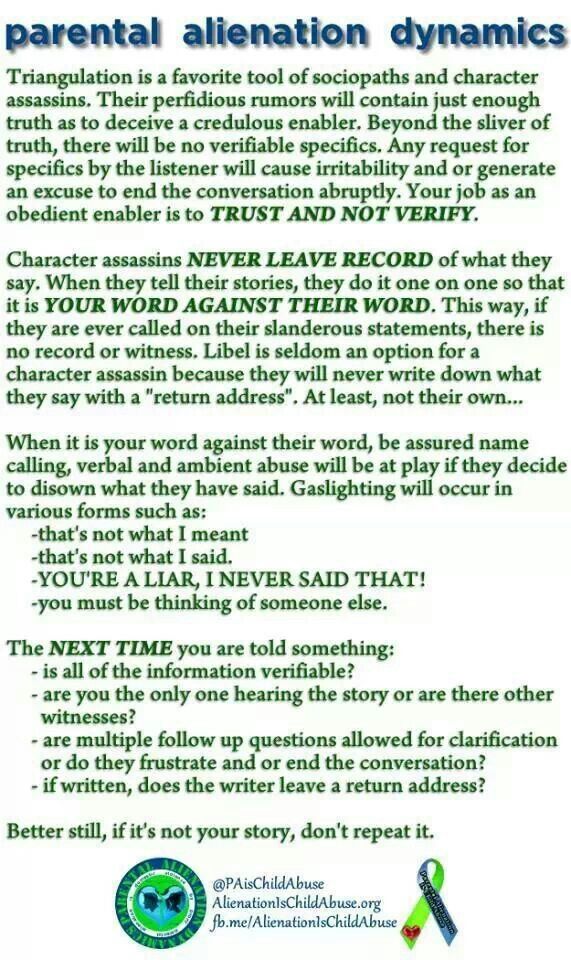
Be prepared for the fact that teaching a little person emotional intelligence and appropriate ways to express their feelings can be difficult and tedious, but this is the only way to raise a person who will be in tune with his inner world, will be sensitive to himself and others, and will be without problems to understand their desires.
All children are different (even children who have the same mother and father), and it is important to see a separate personality in each of them. Give up comparing children with each other and competition between them - this will not teach them to stand up for themselves and achieve more. Approach each child individually and do not forget that their strengths and weaknesses may change over time, and they will not always coincide with your expectations.
It is very important for children to see in their parents reliable people whom they can rely on at any moment. Circumstances are different, but it will be better if you try to keep your word as often as possible and admit your own mistakes if something went wrong.